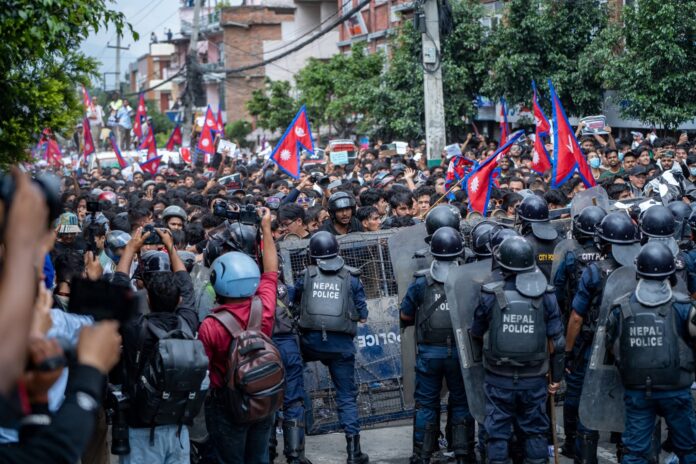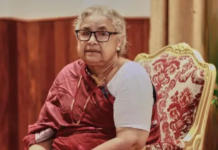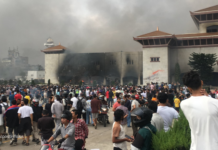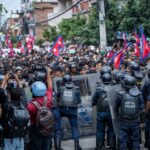By Denzome Sampang
Sept. 8, 2025
Thousands of young Nepalis, many from Generation Z, poured into the streets of Kathmandu and other cities on Monday in defiance of a sweeping government order that banned more than two dozen social media platforms, including Facebook, YouTube, Instagram, WhatsApp, and X.
The ban on social media quickly grew into a wider outcry against years of corruption and political misrule. Demonstrators waved national flags and carried placards demanding accountability, chanting slogans like “Shut down corruption, not social media.”
The police met the protesters with tear gas, rubber bullets, water cannons, and, in some cases, live fire. At least 16 to 19 people were killed and more than a hundred were injured by the end of the day, according to Reuters, The Guardian, and the Associated Press. Curfews were declared in Kathmandu, Itahari, and other sites of protests.
Groups like Amnesty International criticized the crackdown and called for accountability, saying the government’s actions put free speech and democracy at risk. Although many call it a ‘Gen-Z protest,’ observers say people of all ages joined in, united by anger over corruption and repression.
What began as a youthful call for dignity and freedom of expression has become Nepal’s deadliest protest in years. The so-called “Gen-Z movement” was not only about the banning of Facebook, YouTube, and WhatsApp. It was about something more profound, a generation’s frustration with corruption, nepotism, and leaders who appear deaf to their demands.
















